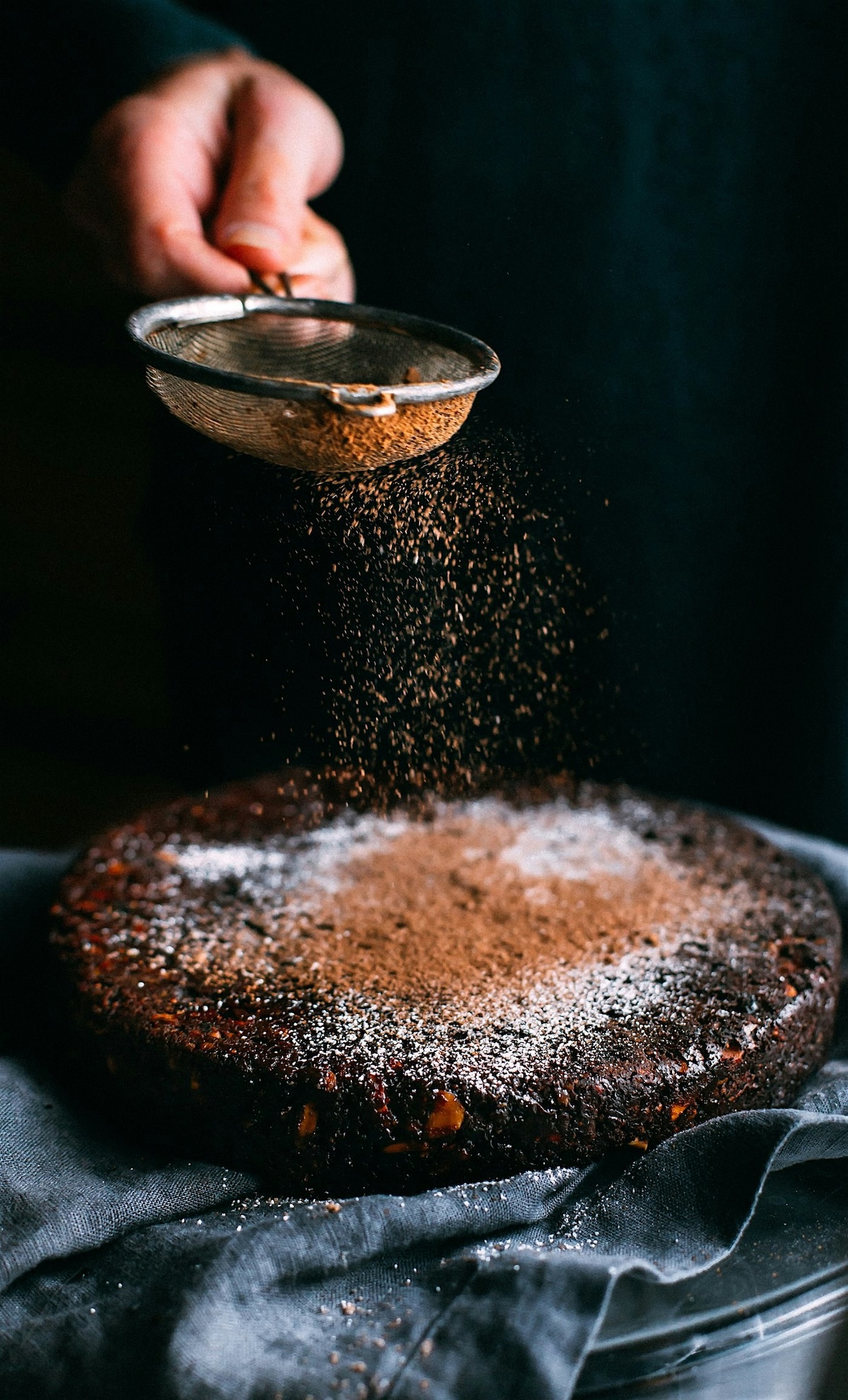Best Plant Milk for Baking: Complete Guide (2026)

This article contains affiliate links to help keep this site free. If you purchase through these links, I may earn a small commission at no extra cost to you. Read our full disclosure policy.
Looking for the best plant milk for baking? Whether you're making cakes, cookies, bread, or muffins, choosing the right dairy-free milk can make or break your recipe.
The good news? Most plant milks work beautifully in baking with just a few simple adjustments. Some even perform better than dairy milk for certain recipes. In this guide, we'll show you exactly which plant milk to use for every type of baked good, plus substitution ratios and troubleshooting tips.
🏆 Quick Answer: Best Plant Milk for Baking
Oat milk is the best all-around plant milk for baking. It has a neutral flavor, creamy texture, and natural sweetness that works in everything from cakes to bread. It's also affordable and widely available.
Runner-up: Soy milk for savory baking and recipes requiring extra structure (high protein content helps).
🥇 #1: Oat Milk - The All-Purpose Champion

Best for: Cakes, muffins, quick breads, pancakes, waffles, most sweet baking
Why it wins:
- Neutral-sweet flavor: Doesn't overpower other ingredients but adds subtle sweetness
- Creamy texture: Similar viscosity to 2% dairy milk
- Moisture content: Keeps baked goods tender and moist
- Natural starches: Help with binding and structure
- Good browning: Natural sugars create nice golden color
- Affordable: Usually cheaper than nut milks
Works great in:
- Birthday cakes and cupcakes
- Banana bread and zucchini bread
- Blueberry muffins
- Pancakes and waffles
- Coffee cakes
- Brownies (when recipe calls for milk)
💡 Pro Tip: Use unsweetened oat milk for savory baking and sweetened for desserts (or adjust sugar in your recipe accordingly).
🛒 Shop Oat Milk for Baking:
🥈 #2: Soy Milk - The Protein Powerhouse
Best for: Bread, pizza dough, savory baking, recipes needing structure
Why it's great:
- High protein (7-9g per cup): Helps with gluten development in bread
- Neutral flavor: Won't interfere with other ingredients
- Good structure: Creates sturdy, well-risen baked goods
- Excellent browning: Protein content creates beautiful golden crust
- 1:1 substitute: Works exactly like dairy milk in most recipes
Perfect for:
- Sandwich bread and dinner rolls
- Pizza dough
- Savory muffins (corn, cheese, herb)
- Yorkshire pudding and popovers
- Crepes
- Quiche (when recipe calls for milk)
🛒 Shop Soy Milk for Baking:
🥉 #3: Almond Milk - The Cookie Champion

Best for: Cookies, crispy baked goods, recipes where you want less moisture
Why it works:
- Thin consistency: Doesn't add excess moisture to cookies
- Very neutral flavor: Let your cookies shine
- Low in everything: Calories, fat, protein (sometimes that's good!)
- Subtle nuttiness: Complements vanilla, chocolate, almond extract
- Budget-friendly: Usually the cheapest plant milk
Great for:
- Chocolate chip cookies
- Sugar cookies
- Biscotti
- Thin, crispy baked goods
- Recipes where milk is just for binding
Looking for a detailed comparison? See our oat milk vs almond milk guide for more on how these two perform in different uses.
🛒 Shop Almond Milk for Baking:
Substitution Ratios: How to Replace Dairy Milk
Good news: Most plant milks substitute 1:1 for dairy milk in baking. But here are the nuances:
Basic 1:1 Substitution (Works for Most Recipes):
1 cup dairy milk = 1 cup plant milk
Making "Buttermilk" with Plant Milk:
1 cup buttermilk = 1 cup plant milk + 1 tablespoon lemon juice or vinegar
Let it sit for 5 minutes to curdle before using. Works with any plant milk, but oat and soy work best.
Tips for Success: Baking with Plant Milk
1. Add Acid for Lift and Tenderness
Most plant milks are neutral pH, while dairy milk is slightly acidic. Add a splash of lemon juice or vinegar (1-2 teaspoons per cup) to activate baking soda and create tenderness.
2. Watch Your Sweetness
Oat milk and coconut milk are naturally sweeter than dairy. If using sweetened versions, reduce sugar in your recipe by 1-2 tablespoons per cup of milk.
3. Don't Overmix
Plant milk batters can become gummy if overmixed, especially with oat milk (natural starches). Mix just until combined.
4. Use Unsweetened for Savory Baking
Always use unsweetened plant milk for bread, pizza dough, savory muffins, and biscuits. Sweetened versions will taste weird.
5. Temperature Matters
Use room temperature plant milk in baking (like you would with dairy). Cold milk can seize up fats and affect texture.
Troubleshooting Common Issues
Problem: Cookies spread too much
Solution: Switch from oat milk to almond milk (less moisture). Or chill dough before baking.
Problem: Cake is too dense
Solution: Add 1 teaspoon baking powder per cup of flour, or try soy milk for more protein structure.
Problem: Bread doesn't rise well
Solution: Use soy milk (high protein helps gluten development). Or add 1 tablespoon vital wheat gluten.
Problem: Pancakes aren't fluffy
Solution: Try soy milk (protein helps structure) or add an extra ½ teaspoon baking powder.
❓ Frequently Asked Questions
What is the best plant milk for baking?
Oat milk is the best all-around plant milk for baking. It has a neutral flavor, creamy texture, and natural sweetness that works in everything from cakes to bread. Soy milk is a close second, especially for savory baking and recipes requiring extra structure due to its high protein content.
Can you substitute plant milk for regular milk in baking?
Yes, you can substitute plant milk for regular milk in baking using a 1:1 ratio in most recipes. Oat milk and soy milk work best as direct dairy replacements. For best results, use unsweetened plant milk and adjust sugar in your recipe if needed.
Which plant milk is best for cakes?
Oat milk is the best plant milk for cakes. Its creamy texture and natural sweetness create moist, tender cakes with excellent crumb structure. Soy milk also works well for cakes that need more structure, like layer cakes.
What plant milk is best for cookies?
Almond milk is the best plant milk for cookies. Its thin consistency doesn't add excess moisture, helping cookies maintain their shape and texture. The neutral flavor lets your cookie flavors shine through.
Can I use plant milk for bread baking?
Yes, soy milk is the best plant milk for bread baking. Its high protein content (7-9g per cup) helps with gluten development, creating sturdy, well-risen loaves with excellent structure. Use unsweetened soy milk for savory breads.
How do you make plant-based buttermilk?
To make plant-based buttermilk, combine 1 cup of plant milk with 1 tablespoon of lemon juice or vinegar. Let it sit for 5 minutes to curdle before using. This works with any plant milk, but oat and soy milk produce the best results for baking.
Final Verdict: Which Plant Milk for Baking?
If you're building a plant-based pantry and can only keep one or two types of milk for baking, here's what we recommend:
Best All-Purpose Choice: Oat Milk (Unsweetened)
- Works in 90% of recipes
- Affordable and widely available
- Creates moist, tender results
- Good for sweet and savory (if unsweetened)
Best Second Option: Soy Milk (Unsweetened)
- Perfect for bread and savory baking
- High protein adds structure
- 1:1 substitute for dairy in any recipe
- Neutral flavor works everywhere
The beauty of plant-based baking? You can experiment! Most recipes are forgiving, and plant milks are affordable enough to try different options. Start with oat milk for everything, then branch out as you discover what works best for your favorite recipes.
Want to use plant milk in your morning coffee or smoothies too? We've got guides for those as well! And if you're baking treats for little ones, check our guide on plant milk for kids. For savory dishes, see our cooking guide.
🛒 Ready to Start Baking?
🥛 Not Sure Which Plant Milk Is Right for You?
Take our free quiz to find your perfect match based on your taste preferences, values, and lifestyle!
Take the Quiz →Happy baking! 🧁